Iran Suspends Expected Talks With Saudi Arabia
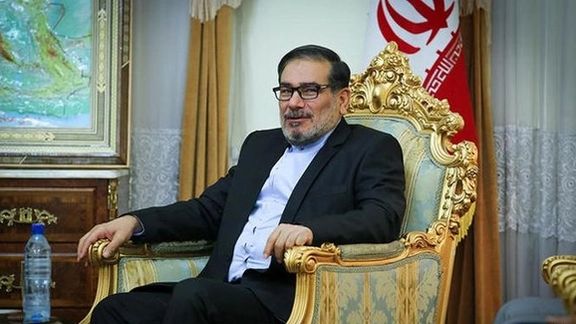
Iran has suspended the fifth round of talks with regional rival Saudi Arabia, a website affiliated to Iran's top security council reported on Sunday.

Iran has suspended the fifth round of talks with regional rival Saudi Arabia, a website affiliated to Iran's top security council reported on Sunday.
Nour News, which is close to the secretary of Iran's Supreme National Security Council (SNSC), Ali Shamkhani, on Sunday broke the news of the “temporary suspension” of the fifth round of negotiations.
"Iran has unilaterally suspended talks with Saudi Arabia," the report said, without providing a reason. The announcement was unexpected as Iran had been publicly more enthusiastic about the talks than Saudi Arabia.
The report said no specific date had been scheduled for a new round of talks. Iraqi Foreign Minister Fuad Hussein announced on the sidelines of the Antalya Conference on Saturday that the fifth round of talks would be held in Baghdad on Wednesday
The news comes a day after Saudi Arabia carried out mass executions of 81 men that activists said included 41 Shiite Muslims.
Sunni Muslim Saudi Arabia and Shiite Iran, which are locked in proxy conflicts around the region, launched direct talks hosted by Iraq last year at a time when global powers were trying to salvage the 2015 nuclear pact with Tehran, and as UN-led efforts to end a war in Yemen stalled.
Riyadh cut ties with Iran in 2016 when mobs attacked its embassy in Tehran after Riyadh executed 47 dissidents including the leading Shi'ite cleric Sheikh Nimr al-Nimr. An Iranian lawmaker had said in January that Tehran and Riyadh were getting ready to reopen their embassies.
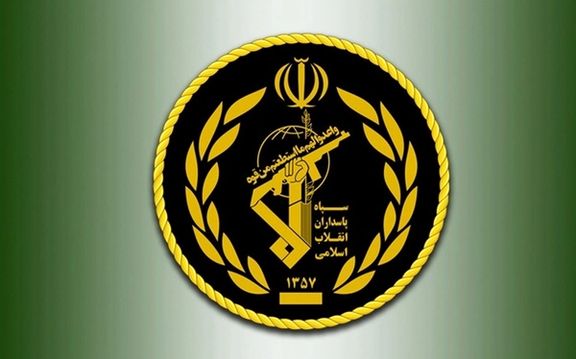
Iran's Revolutionary Guard (IRGC) has released a statement taking responsibility for the ballistic missile attack on Iraq's Kurdish regional capital of Erbil.
The Sunday statement coming hours after the attack said Israeli "strategic centers" were targeted “last night with precision-guided missiles” of the IRGC, while the apparent target was the US consulate in the city.
It stressed that the Iranian armed forces are a “red line” and “no one will be allowed to threaten or attack them”.
"Any repetition of attacks by Israel will be met with a harsh, decisive and destructive response," the statement added, noting the IRGC had vowed it would not “leave Israel’s crimes and evils unanswered”.
On Monday, the IRGC had vowed to avenge the death of two of its officers in an Israeli air strike near the Syrian capital Damascus.
The IRGC statement said Col. Ehsan Karbalaipur and Morteza Saeednejad “were martyred” on the outskirts of Damascus by an Israeli missile attack. “Without a doubt the Zionist regime will pay for this crime.”
Iran has entrenched itself in Syria after a decade of military involvement is support of Bashar al-Assad’s government and Israel often strikes Iranian military targets it deems a threat.
A dozen ballistic missiles struck Erbil at 1 am on Sunday, targeting the US consulate's new building and the neighboring residential area but caused only material damage and one civilian was injured, the Kurdish interior ministry said.
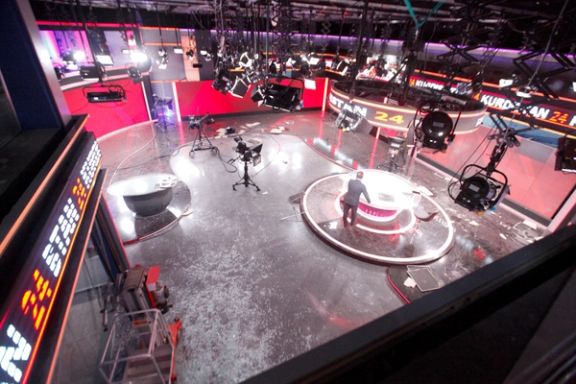
Lawmakers and former American officials have reacted to an Iranian ballistic missile attack on the US consulate in Iraq’s Erbil urging an end to Iran nuclear talks.
In a major escalation of tensions in the Middle East, a dozen ballistic missiles struck Erbil at 1 am on Sunday, targeting the US consulate's new building and the neighboring residential area but caused only material damage and one civilian was injured, the Kurdish interior ministry said on Sunday.
Iran's Revolutionary Guards released on Sunday a statement taking responsibility for missile attacks against Israeli "strategic centers" in Iraq's northern Kurdish regional capital of Erbil
Democratic representative Elaine Luria said in a tweet hours after the attack that she is continuing to monitor the situation, stating that “if reports are accurate, the Biden Administration must withdraw its negotiations with Iran”.
“We cannot re-enter a failed JCPOA to further empower Iran and threaten global security”, the Navy veteran added.
Republican Congresswoman Lisa McClain said, “This aggression shows we should absolutely end all Iran Nuclear Deal negotiations now. We must also never buy Iranian oil”.
Congressman Ritchie Torres twitted, “Iran attacks a US consulate while seeking US sanctions relief? No Bueno”.
Senior Adviser at the Foundation for Defense of Democracies Richard Goldberg urged Biden to convene an emergency meeting of the National Security Council “to assess available intelligence & consider a full range of military, cyber, economic & political responses, noting, “The Russian-brokered Iran Deal on the table in Vienna includes lifting terrorism sanctions on Iran’s central bank, oil company, tanker company, petrochemical company & many more alongside removing the IRGC from the FTO list. Tonight should be a death knell for this horrible deal”.
“No country can be allowed to launch missile attacks against US interests without facing an immediate and meaningful response. There are a range of options. Deterrence must be restored. This isn’t partisan. If the President acts, he should get bipartisan support”, he added.
Gabriel Noronha, a former official at Iran desk in the State Department said, “Democrats and Republicans in Congress agree: Biden must not continue talks with Iran while they attack our bases in Iraq”.
Another official of the former US administration Robert Greenway, who was part of the negotiating team for the Abraham Accords, said, “Is it too much to ask Iran cease threatening US citizens to continue negotiations or enjoy any benefits of a deal? Or that we consider a regime so committed to killing more Americans unworthy of our trust negating the viability of any deal?”
Andrew Lewis Peek, who was a strategic advisor to the NATO commander in Afghanistan, said in a tweet, “Tonight’s missile attack in Iraq is 100% representative of a breakdown of deterrence against Iran not just under Biden, but under years of US policy in Iraq”.
Former research fellow at the Washington Institute Nadav Pollak has reacted to a video shared by advisor to Iran's nuclear negotiating team Mohammad Marandi, who gloated, “This is just the beginning”.
Pollak said, “The fact that Iran is doing this while talks are still being held in Vienna says something about how they perceive the EU and US resolve to contain them”.
A State Department spokesperson told Axios that the incident "is being investigated by the government of Iraq and the Kurdish Regional Government."

Some media and politicians in Iran continue criticizing Russia for “obstructing” the nuclear talks in Vienna that could have lifted most sanctions against Iran.
Hardline newspapers continue to defend Russia's aggression against Ukraine and tend to minimize the impact of Moscow's demand for exemption from Ukraine sanctions on Iran's nuclear deal with the West.
Russia on March 5 tied the fate of a nuclear agreement with Iran to sanctions the West has imposed for its invasion of Ukraine, demanding exemptions in its economic and other relations with Iran. The 11-month negotiations in Vienna “paused” in what was seen as a deadlock after the Russian demands.
Taking Iran 'hostage'
Ali Motahari, a prominent former lawmaker wrote in a 12 March tweet that "in the last stage of efforts to revive the 2015 nuclear deal Iran should get rid of its fear of Russia and solve the remaining problems through holding direct talks with the United States."
Motahari reminded that "Russia is seriously concerned about the revival of the JCPOA and an improvement in Iran’s relations with the West. Russia wants Iran to be Moscow's hostage and act as a shield to support Moscow in the conflict with the West."
Meanwhile, according to Etemad Online website in Tehran, Hassan Khomeini, the grandson of the founder of the Islamic Republic Rouhollah Khomeini said that "Relying on foreign nations is a mistake as other countries, whether friends or foes, serve only their own interests."
He suggested that the Iranian government should not "fall in love with the East or West," and that Iran should rely on its own national identity. Also, the young Khomeini in reference to Russian invasion stressed that the nation "hates aggression and no one should defend it." He also reminded that his grandfather had defended the people of Afghanistan against Russia's invasion in the 1980s. Iranian officials have blamed the United States and NATO for Russia’s action.
In another article on Saturday, the website quoted political analyst Fayyaz Zahed as saying that Tehran's dependency on Russia will create endless problems for Iran. Zahed said if Iran fails to control Russia's excessive demands, Tehran will fall into the trap of perpetual tensions, and this can shift the pressure exerted by the West on Russia to others in the Middle East. Zahed shied away from naming Iran and vaguely referred to the Middle East.
He said Russia obstructed the final stage of the talks in Vienna while everyone expected an agreement in late March. Russia's behavior, said Zahed, was tantamount to taking Iran and its interests hostage.
Divide among hardliners
In the meantime, a divide is taking shape among conservative newspapers in Iran. Last week all followed the party line of supporting Russia and blaming the United States for the Ukraine crisis. They are still doing so, but a change is taking shape about their reaction to Russia's obstruction of the nuclear deal.
On Saturday, Khorasan newspaper criticized Foreign Ministry Spokesman Saeed KHatibzadeh for blaming "Foreign elements" for obstructing the talks and asked: "Why you do not want to name that foreign element?"
This comes while hardliner daily Kayhan and IRGC mouthpiece Akhbar-e Sepah newspapers continue to support of Russia’s policies in all respects. The Kayhan claimed that Russia's attack on Ukraine has had "marvellous benefits" and revealed double standards in world politics.
Akhbar-e Sepah, which according to Didban Iran website, is the IRGC's internal publication, stressed that the United States and not Russia should be blamed for the failure of the talks in Vienna. The publication claimed that the parties to the JCPOA deliberately kept silent about the fact that the United States has refused to accept four of Iran's conditions. It further claimed that the talks were still a long way from reaching any results.
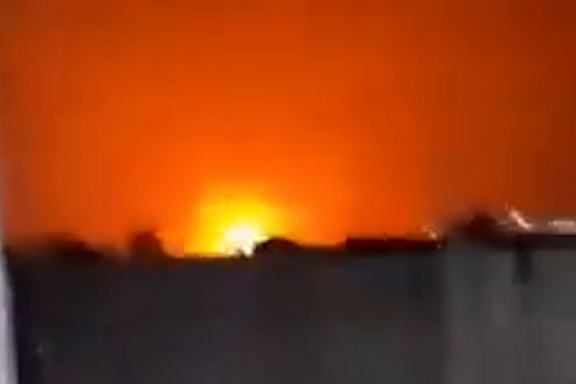
Missile attacks that struck Iraq's northern Kurdish regional capital of Erbil in the early hours of Sunday were launched from Iran, a US official told Reuters.
In a major escalation of tensions in the Middle East, a dozen ballistic missiles struck Erbil at 1 am on Sunday, targeting the US consulate's new building and the neighboring residential area but caused only material damage and one civilian was injured, the Kurdish interior ministry said on Sunday.
An Iranian state-TV correspondent based in Iraq said that the missiles were aimed at "secret Israeli bases," a claim repeated by government-controlled media in Iran.
Fars News in Iran affiliated with the Revolutionary Guard (IRGC) reported the attack Sunday morning only quoting a pro-Iran news agency in Iraq saying that ballistic missiles hit “military targets” in Erbil.
Later on Sunday, Iran's Revolutionary Guard took responsibility for launching the attack.
Earlier in the week Iran vowed revenge for the death of two IRGC officers near Damascus Syria in what appeared to have been an Israeli air or missile attack.
There was no official claim of responsibility or further details available. A US State Department spokesperson called it an "outrageous attack" but said no Americans were hurt and there was no damage to US government facilities in Erbil.
The official government news agency IRNA also quoted Iraqi sources saying the attack targeted “advanced training centers of Israeli spying agencies.”
The attack also coincides with a “pause” in nuclear talks in Vienna. After 11 months of talks between Iran and world powers to revive the Obama-era nuclear agreement called JCPOA came to a halt after Russia made demanded that it be exempt from Ukraine sanctions in its dealings with Iran.
The attack on Erbil is expected to have a further negative impact on any chances of a nuclear agreement.
An Iranian website reflecting the views of the country's national security council announced Sunday that scheduled talks with Saudi Arabia have been "suspended".
US forces stationed at Erbil's international airport complex have in the past come under fire from rocket and drone attacks that US officials blame on Iran-aligned militia groups, but no such attacks have occurred for several months.
The last time ballistic missiles were directed at US forces was in January 2020 - an Iranian retaliation for the US killing earlier that month of its military commander Qasem Soleimani at Baghdad airport.
No US personnel were killed in the 2020 attack, but many suffered head injuries.
Iraq and neighboring Syria are regularly the scene of violence between the United States and Iran. Iran-backed Shi'ite Islamist militias have attacked U.S. forces in both countries and Washington has on occasion retaliated with air strikes.
Kurdish officials did not immediately say where the missiles struck. A spokesperson for the regional authorities said there were no flight interruptions at Erbil airport.
Residents of Erbil posted videos online showing several large explosions, and some said the blasts shook their homes.
Iraq has been rocked by chronic instability since the defeat of the Sunni Islamist group Islamic State in 2017 by a loose coalition of Iraqi, U.S.-led and Iran-backed forces.
Since then, Iran-aligned militias have regularly attacked US military and diplomatic sites in Iraq, US and many Iraqi officials say. Iran denies involvement in those attacks.
With reporting by Reuters
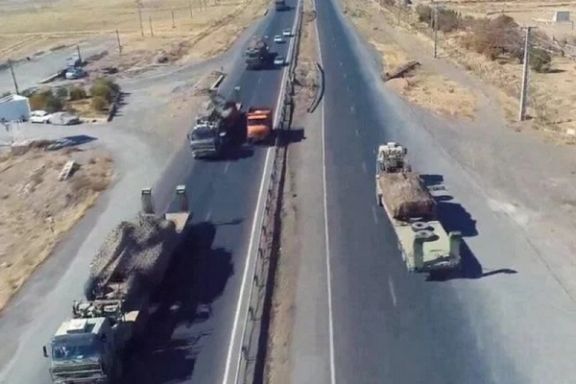
Tehran and Baku have agreed to build a highway to connect Nakhchivan to Azerbaijan ‘s Eastern Zangezur Economic Region through Iran.
Iranian Road Minister Rostam Ghasemi and Azerbaijan’s First Deputy Prime Minister Shahin Mustafayev signed the agreement during a meeting with President Ilham Aliyev in attendance in capital Baku on Friday.
The 55-kilometer highway will bypass the territory of Armenia, which is located between Nakhchivan and Azerbaijani region of Kalbajar-Lachin, now named Eastern Zangezur.
The region was in Nagorno-Karabakh that came under the control of Azerbaijan after Yerevan and Baku fought a war over the disputed region in 2020.
This highway will also connect to the International North–South Transport Corridor that is a multi-mode network of ship, rail, and road route for moving freight across India, Iran, Azerbaijan and Russia.
In January, Iran and Azerbaijan signed another dealto construct a bridge on Astarachay River running along the joint border as part of their plans to increase road transit between the two countries.
In a message to President Ebrahim Raisi on the 30th anniversary of the establishment of diplomatic relations between Azerbaijan and Iran Saturday, Aliyev said, “Over the years, numerous reciprocal trips, signed documents and agreements, as well as joint projects have played an important role in the development of our dynamic cooperation in political, economic, transport, energy, cultural and other fields”.